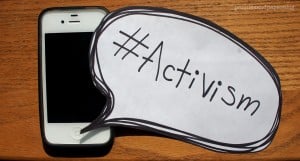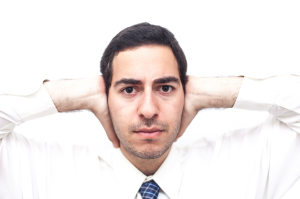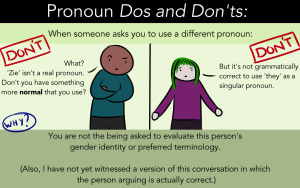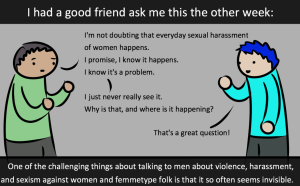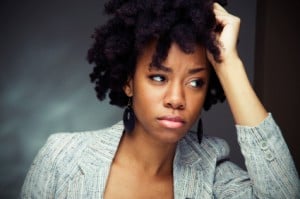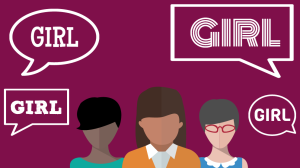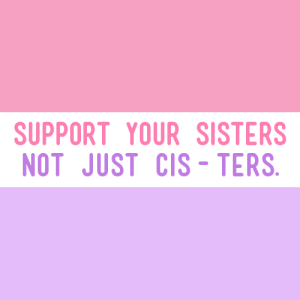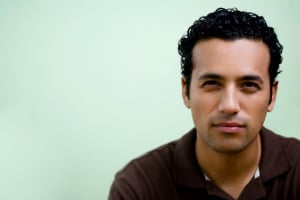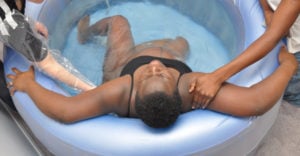
EF
(Trigger Warning: Sexual Violence, Rape Culture)
As we know all too well, women and girls get tons of useless advice about how to “protect” ourselves. And then whether we follow the advice or not, we’re blamed for our own assaults.
Thankfully, more people are pushing back against these victim-blaming messages and standing up to those who believe we caused our own attacks because of something we did or failed to do.
Increasingly, society is rightfully putting the responsibility for the crime on the person who committed it and not on the person targeted. There is nothing any survivor could do or not do that could “cause” a sexual assault, harassment, intimate partner violence, or stalking to happen.
At the same time, we all have the right to assert our boundaries and defend ourselves. We have the right to unlearn the messages telling us to “stay quiet” and “not rock the boat,” especially in the face of someone hurting us.
But for many people, saying that we can defend ourselves sounds like victim-blaming. It can feel like someone’s saying, “If you just had fought back harder, you would have escaped” or “You should have taken a self-defense class and then you wouldn’t have been raped.”
So how do we reconcile those two messages?
One way is through feminist, empowerment-based self-defense.
Before we describe what that is, let’s talk about why some people see self-defense as victim-blaming.
Much of What Passes for Self-defense Is Victim-Blaming
It makes sense that some people think self-defense is victim-blaming because a lot of what’s called “self-defense” is victim–blaming.
The people who say they are teaching women self-defense, but really are just telling them a whole lot of ways that they should limit their lives, are reinforcing victim-blaming and rape culture.
Think of those useless and alarmist tip lists: “Don’t leave your drink unsupervised, don’t park next to a van, don’t wear a short skirt,” and the amazing and impossible “be aware of everything around you all the time.”
Feminists are justified in being outraged that much of what passes as “self-defense” doesn’t improve safety and is instead about controlling women’s behavior and access to the public sphere.
What’s more, most of what’s called “self-defense” doesn’t address where the real risks lie.
Those tip lists all focus on stranger danger. But the vast majority of attacks on women, children, and LGBTQ people – the groups most targeted for sexual violence – are by people we know.
That’s why we – as feminist, empowerment-based self-defense instructors –are furious, too.
This is our profession, and we’re insulted to see our principled efforts conflated with victim-blaming misinformation.
But that doesn’t mean we should dismiss all self-defense.
While some good men are out teaching other men not to rape and generally dismantling patriarchy, I can’t wait around for them to finish the task.
I want to do what I can to be safe. And I want to share with others targeted for harassment, abuse, and assault the skills that might reduce their vulnerability, increase their sense of personal power, help them recover from past violations, and – not incidentally – change the world.
Empowerment self-defense instructors are really clear about the difference between what we do and victim-blaming bad advice. Our professional association requires that we be explicitly non-victim-blaming and survivor-centered in our teaching.
So let’s talk about how we can both learn how to defend ourselves while keeping the responsibility for the violence where it belongs – on the attacker.
Empowerment Self-Defense Provides a Toolkit of Skills
To one degree or another – depending in part on our family, class, and culture – we’ve all been socialized not to resist sexual violence.
We’ve learned to ignore our intuition and not to assert our boundaries.
We’re told to put other people’s feelings and comfort first. We’re told to be “nice” and “polite” and not to “make a scene.”
We’re told that we never should resist or else we’ll just “make them madder.”
Those messages, combined with the fact that 80% of sexual assaults are committed by someone the victim knows, make it difficult to resist.
We also spend a lot of time on verbal skills, learning how to say what we want and what we don’t. We learn how to address the violation while it’s still in the talking stage. This is really important because even many stranger attacks start with talking!
Also, we address the full continuum of violations that people targeted for violence face – from disrespectful comments and street harassment to unwanted touching and full-on assault.
Most importantly, we reflect a belief central to self-defense — that we are worth defending and have the right to do so.
Empowerment Self-Defense Provides Choices, Not Mandates
The truth is that those of us at heightened risk of violence practice self-defense every day.
All people oppressed by violence are experts in our own safety because we have to be. (While we know that people of all genders experience and perpetrate sexual violence, women are more often victims and violence is most often perpetrated by men we know.)
We embrace that personal expertise, and unlike victim-blaming “self-defense,” we don’t tell anyone what to do – or not do. We don’t even give advice.
Because you don’t empower someone by telling them what to do.
Instead, empowerment self-defense offers a toolkit of options and shares information to help you make decisions in various situations with the assurance that there will be no judgment about what you choose to do or not do.
We say, “Hey, here’s a bunch of skills and strategies that can help interrupt a whole range of violating behavior. And even if you’re never targeted for rape, these skills will probably help you feel more confident, feel better about yourself, help you make life choices and live more authentically.”
And we recognize that complying with an attacker or abuser can sometimes be the best choice to ensure your survival.
Only you, living your own life, can know what the best decision for yourself is.
Empowerment Self-Defense Honors Survivors and Survival
The experience of sexual violence can remove our sense of agency and control. In order to assert the personal power that was taken from us, we may sometimes blame ourselves.
“That will never happen to me again,” a survivor might tell herself, “because I’ll never make the same mistake again.”
Even women who resist attack – even women who successfully resist – sometimes blame themselves. Often women don’t recognize the many ways that they took action to protect themselves, regardless of the outcome of the assault.
Struggling, trying to create distance, lying, asking for help, staying aware, disassociating, and choosing to comply, are all forms of resistance. Unfortunately, society often doesn’t acknowledge that.
Instead, society trains us to blame ourselves.
But — as we know — the perpetrator is the only person responsible for an act of sexual violence. A survivor has made no mistakes. She holds no responsibility for what was done to her. While self-blame is an understandable response, the culture of victim-blaming undermines survivors’ wellness and maintains the systems of gender-based violence.
We know that in any group of women, it’s likely that more than half of us have experienced child sexual abuse, attempted or completed sexual assault, and/or an abusive relationship.
That’s why we tell students: “I believe you did the best you could to get through whatever violations you’ve experienced. I honor the skills you used to survive and the fact that you’re here, taking care of yourself.
“Self-defense isn’t about beating yourself up for what you did or didn’t do. It’s about recognizing the survival skills you have and gaining more skills so that if you’re faced with abuse or attack again, you’ll have more options.”
And over the course of the classes, students start to notice the ways they do stand up for themselves, they do take care of themselves, they do resist – even if it’s in small ways in everyday life.
How Empowerment Self-Defense Can Help
By providing skills – rather than tyrannical lists of things to do and not do – empowerment self-defense can help reduce the risks of being assaulted and increase self-confidence.
- Resistance can reduce the risk of rape more than 80%, and it doesn’t significantly increase the risk of serious injury to the defender.Some studies show that women successfully resist at least 75% of all attempted sexual assaults.
- Forceful verbal and physical resistance and running away are some of the most effective self-defense techniques.
- Survivors of intimate partner violence use many active and creative self-protective strategies both to resist and to escape violence.
- Self-defense training may increase assertiveness, sense of control, belief in your own abilities, risk-avoidance, confidence, and self-esteem. It also may also lower anxiety and fear.
Does this mean that if you use everything you learned that it will guarantee you won’t be assaulted? Unfortunately not.
Why? Because the only person responsible for an attack is the attacker.
But in teaching how to assert yourself in everyday situations and feeling better prepared to handle a dangerous situation, empowerment self-defense can still change your life.
Empowerment self-defense also helps survivors (remember, that’s at least half of us) recover from trauma in ways talk therapy can’t. Trauma is stored in the body, and there’s nothing like feeling your power, and yelling really loud, to let that stuff out.
Students say that regardless of whether or not they’ve ever had to “use it,” empowerment self-defense transformed their lives in many ways. They’re more confident, more assertive, less fearful – to name just a few.
Learn Self-Defense, Change the World
Though very few men rape, all men benefit from the power and privilege it enforces. And some – though not yet nearly enough – are working hard to end it. That’s going to take a long time.
So in the meantime, we need to protect ourselves and do what we can to upend the power-oppression scheme. It’s not either/or; it’s both/and.
Empowerment self-defense does more than help individual women fight off rape attempts: It changes the world, individually and collectively – and ultimately, systemically.
Women who have taken empowerment self-defense interact differently with the men in their lives. They take more healthy risks. They live more authentically. They raise their children differently. And on and on.
Person by person, they are changing the world and ending rape culture. They’re part of the revolution that is feminism. Which we think is something we all can agree is not victim-blaming – and is a good thing.
[do_widget id=”text-101″]
Want to discuss this further? Visit our online forum and start a post!
Lauren R. Taylor is a Guest Writer for Everyday Feminism and teaches skills for stopping harassment, abuse, and assault with Defend Yourself. She started working to end gender-based violence in 1978 and somehow she’s still passionate and inspired. She also, in partnership with Collective Action for Safe Spaces, addresses the connection between alcohol and sexual aggression with the bystander-training program Safe Bars. She loves her hometown of Washington, DC, and a vision of a better world.
Anti-violence educator Lynne Marie Wanamaker has been active in the movement to end sexual and gendered violence since 1988. She writes, speaks and teaches about the ways that individuals and communities can take action to interrupt the epidemic of violence. Learn more at www.lmwsafe.com.
Search our 3000+ articles!
Read our articles about:
Our online racial justice training
Used by hundreds of universities, non-profits, and businesses.
Click to learn more





